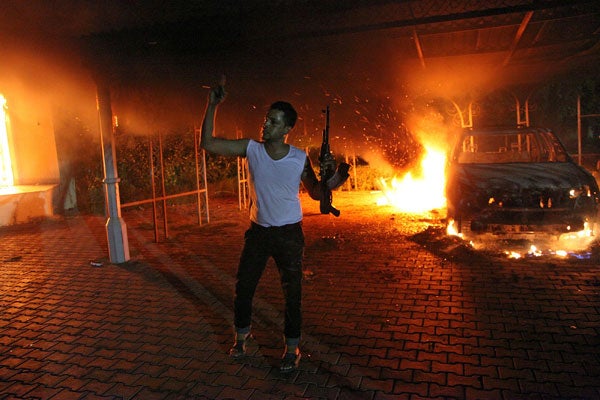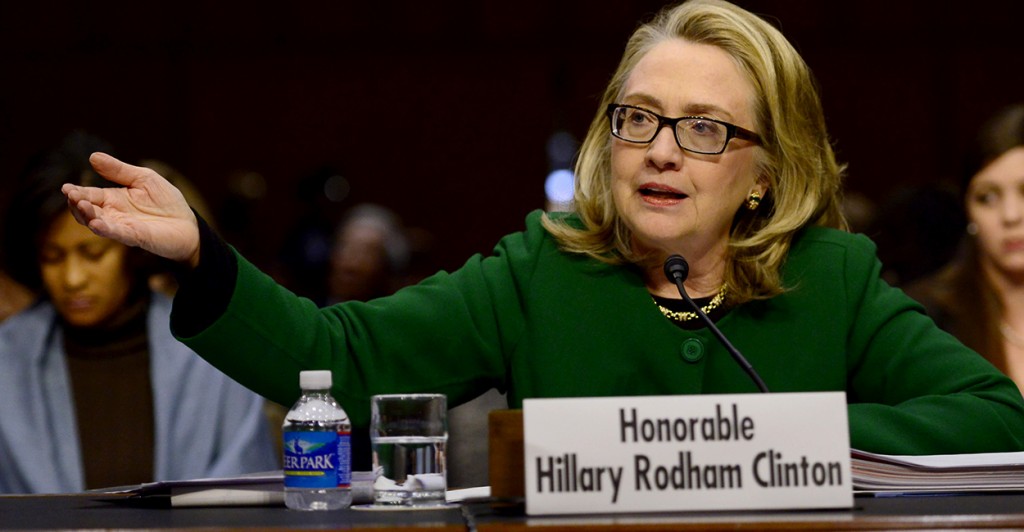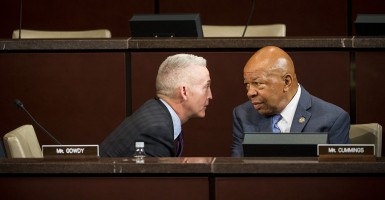More acrimony emerged between Democrats and Republicans during yesterday’s third public hearing of the House Select Committee on Benghazi than had been seen at any point since the committee was established last summer.
Earlier hearings had been on topics suggested by Democrats on the committee—embassy security and other improvements—that were relatively uncontroversial. But the focus of yesterday’s hearing was the Obama administration’s reluctance to produce documents and witnesses to congressional investigators. As the committee zeroed in on the Obama administration’s efforts to minimize the political fallout from the loss of American lives in Benghazi on September 11, 2012, the hearing quickly turned contentious.
Chairman Trey Gowdy, R-S.C., called the hearing with State Department representatives, led by Joel Ruben, and CIA legislative affairs representative Neil Higgins to discuss the state of compliance with requests for documents and access to witness testimony.
In his opening statement, Gowdy said both agencies had been slow to respond or had redacted large amounts of information necessary to the investigation—charges leveled by previous investigative committees. Although new documents have been produced, Gowdy said committee staffers were initially denied access to so much information they could not compile a complete hearing.

An armed man waves his rifle as buildings and cars are engulfed in flames after being set on fire inside the US consulate compound in Benghazi late on Sept. 11, 2012. (Photo: Getty Images/Newscom)
At this, Democratic committee members jumped to the Obama administration’s defense and claimed the lack of information was the result of Republicans’ delayed or inadequate requests for documents and witnesses. Ranking Minority member Elijah Cummings, D-Md., also claimed the chairman and Republican members had shut out Democratic members, failed to notify them when the committee interviewed witnesses and that the Republicans downplayed the importance of the information it had gathered.
Cummings reiterated charges made in a letter to Gowdy in November and made public this week that Democrats were not allowed to vote on rules other than those introduced by the chairman. The State Department representatives claimed they had turned over 40,000 documents and 22 witnesses and that they had minimized redactions and had not denied access to witnesses.
They repeatedly stated they would cooperate with anything the committee needed and said there was a lot of information, and it would be easier if they knew the committee’s priorities. Republicans replied they had no priorities, because they did not have enough information to establish priorities.
The hearing indeed took on a he said/she said quality. Yet, it is demonstrably clear that if the Obama White House, State Department and CIA had cooperated fully with previous congressional investigations, there would have been no need for a Select Committee. House Speaker John Boehner was not convinced to set up the committee until after it was revealed the National Security Council had withheld relevant emails for a year and a half.

Hillary Clinton testifies before the U.S. Senate Committee on Foreign Relations on Benghazi, Jan. 23, 2013. (Photo: Ron Sachs/Newscom)
On top of that, credible State Department whistleblowers have spoken of intimidation and retaliation against anyone determined to provide testimony. One State Department whistleblower told The Daily Signal’s Sharyl Attkisson he witnessed the destruction of relevant documents under the supervision of then-Secretary of State Hillary Clinton’s chief of staff.
Yesterday’s testy committee hearing may have produced more heat than light. But at least it showed Gowdy is closing in on one of the main issues regarding Benghazi—the cover up.
























